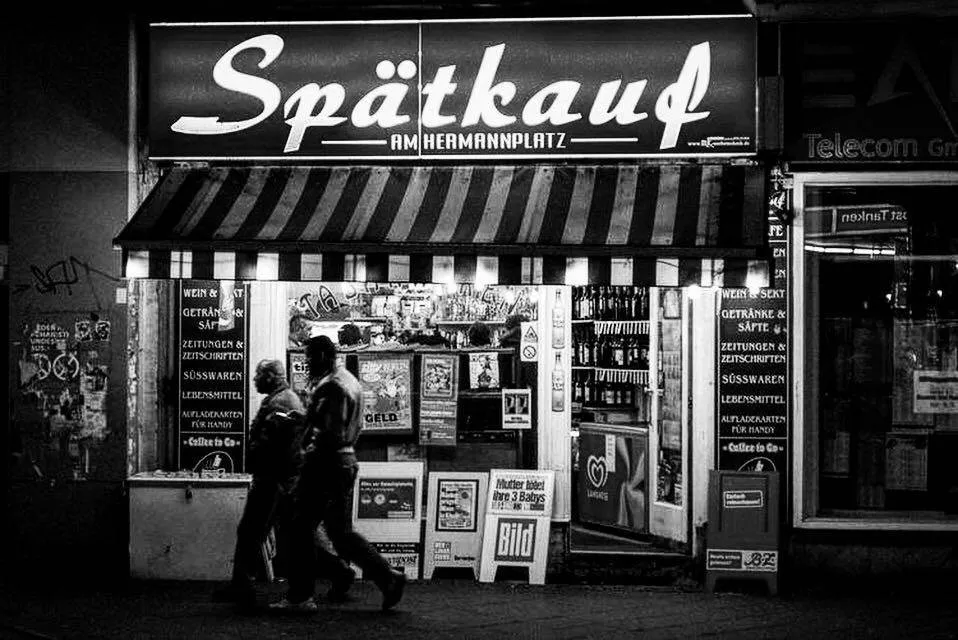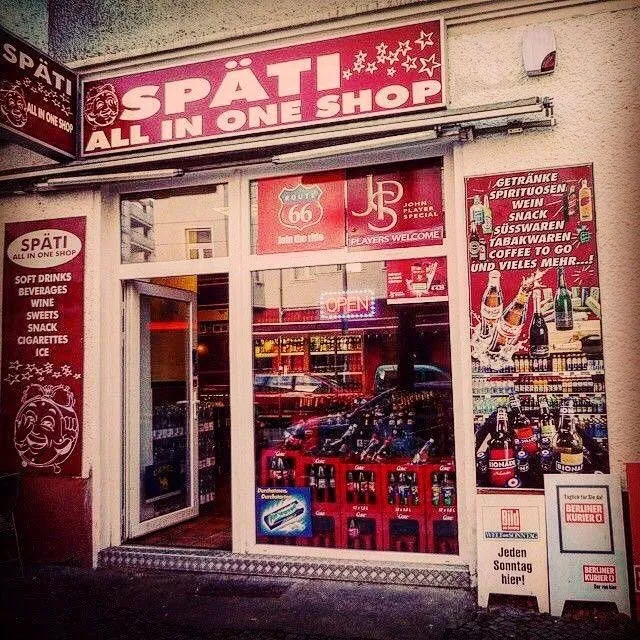If night owls need strengthening, a few steps are usually enough to get to the root-Späti.
But why there are Spätis in Berlin and not in other cities?

Spätis are a Berlin specialty. There are about 1000 of them in Berlin, most in the city center. They provide the residents with the necessary, if the other shops have already closed and the tank is too far away or too impersonal. Beverages, sweets, tobacco products and magazines pile up on the shelves and on the floor, often with toilet paper, flowers, milk and pastries. Sometimes a series runs on the computer between the shop counter and the shop window. The regular customers stand or sit in front of them, while the walk-in customers enter and leave the shop in rapid succession.Spätkauf is part of the Berlin neighborhood culture. The late purchase is an integral part of the Berlin neighborhood culture. It is a supermarket, meeting point, Internet café, bakery, drugstore, lottery, post office and tavern in one. And not only after work, on holidays and on weekends. Often one look is enough instead of many words.
The operators know their regular customers by name or by the face and know what's up. Typically Berlin just. That it exists, the Berliners, new Berliners and tourists also thanks to the history of the city. The term Späti comes from Spätkauf, more precisely from "early and late" or "late sale points" in the DDR. After the dissolution of the DDR, the term is also common in West Berlin. The equivalent of "Späti" is called "Büdchen" in Düsseldorf and "Wasserhäuschen" in Frankfurt. In Bavaria, there is only the "kiosk". The "Kiosk" appeared in 1859 almost simultaneously with the mineral water bottle in the streets of Berlin. Since he was called "mobile drink room ", was designed by Martin Gropius and introduced by the Berlin police against the rising alcohol addiction. For at that time workers drank mainly liquor and beer, because the Berlin tap water endangered the health. In addition, the consumption of alcohol was promoted by factory owners through so-called "Schnapsspenden". Other than the name „drink room " suggests, the sale of alcohol was prohibited there. First there was only bottled water, but soon the offer was extended to soda, sweets, magazines, tobacco and a little later but still alcohol. After 1900, the word drink room came out of fashion in Germany and was increasingly replaced by the term kiosk.
Until the DDR then introduced the Späti. The Berliner "Shop Hours Act" stipulates that even on Sundays between 7 am and 4 pm Spätis is only allowed to sell print media, flowers, dairy products and baked goods. The sale of drinks and tourist offers are allowed between 13 and 20 o'clock. The sale of alcohol is then generally prohibited. Spätis with a larger assortment would therefore have to be closed on Sunday.
That not everyone sticks to it, is somehow also typical Berlin.
Lovely Easter my loves🐰
Ciao Kakao
Your Morticia💋
